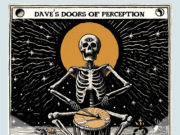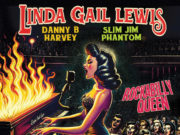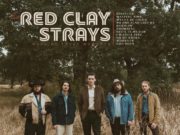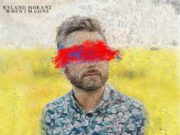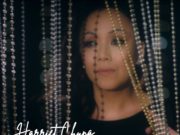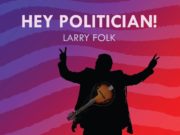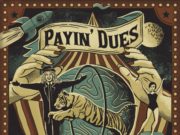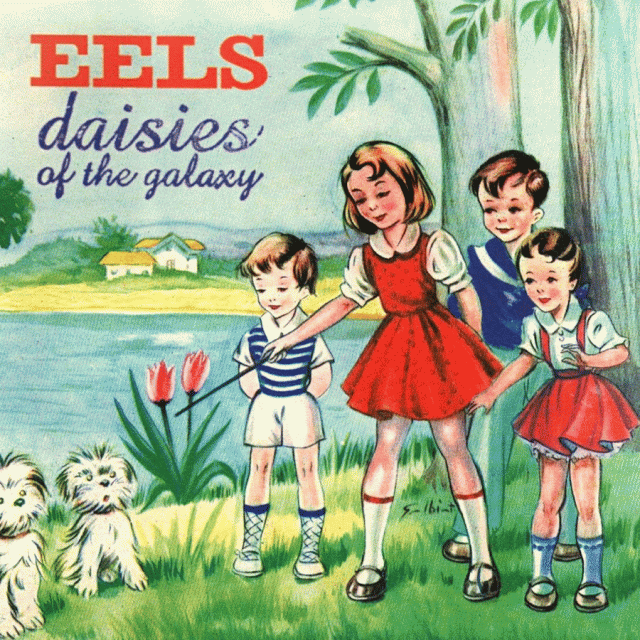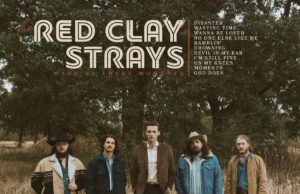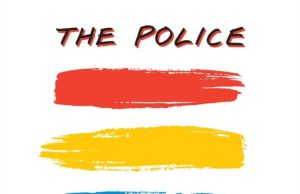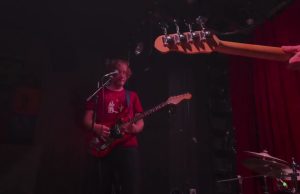Two decades ago, new albums and reissues from The Byrds, Eels, Violent Femmes, Danko Jones and others were spinning away in my portable CD player. Here’s what I had to say about them back then (with some minor editing):
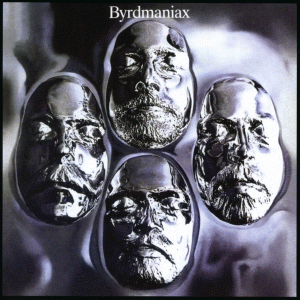 The Byrds
The Byrds
Live at the Fillmore: February 1969
(Untitled) / (Unissued)
Byrdmaniax
Farther Along
A time to live, a time to die, a time to reap, a time to sow — and a time to remix, remaster and reissue? Thanks to the CD revolution and aging boomer populations, that final time has come for a lot of classic ’60s bands. Lately, it’s been The Byrds’ turn, turn, turn; Sony and Byrds man Roger McGuinn have spent the last few years slowly refurbishing the rereleasing most of the the seminal country-rock outfit’s catalogue in chronological order. The four discs above are the last chapter in that tale, covering the combo’s final days as a McGuinn-led foursome, long after their Eight Miles High glory days and minus original members David Crosby, Gene Clark, Chris Hillman and Michael Clarke.
Like many acts in similar shoes, by the late ’60s The Byrds survived primarily as a live act, grudgingly cranking out the hits on endless tours that hammered them into an onstage outfit as predictably precise as a Swiss watch. Still, as the newly unearthed tapes of Live at the Fillmore: February 1969 attest, Roger and co. could still weave some magic on occasion. After barreling through the obligatory hits medley — Turn! Turn! Turn!, Mr. Tambourine Man, Eight Miles High — early on in the set, the boys turn their attention to their just-released Dr. Byrds and Mr. Hyde disc, jangling their way through a fiery set peppered with the usual Bob Dylan covers (This Wheel’s on Fire, Chimes of Freedom) and the sort of cool country and bluegrass tunes that seldom made it onto their studio albums: Buck Owens’ Buckaroo, Merle Haggard’s Sing Me Back Home and Red Simpson’s Close up the Honky Tonks.
By contrast, the live half of 1970’s double-album (Untitled) / (Unissued), with its own collection of Dylan tunes and hits — including a 16-minute hippie-jam version of Eight Miles High — seems uninspired. Still, it earns its status as the last great Byrds album thanks to its studio portion, which contains underappreciated originals like Chestnut Mare and Just a Season, along with covers of Leadbelly’s Take a Whiff on Me and Lowell George’s Truck Stop Girl. For fans, though, the real draw here is the (Unissued) set of 14 unreleased cuts, including live versions of some studio tracks (and vice versa), another Lowell George cover (the truckin’ ode Willin‘) and a nice a capella coda of Amazing Grace.
Sadly, there’s little amazing about ’71’s lifeless Byrdmaniax, a syrupy, over-produced affair that even McGuinn admits isn’t the band’s finest hour. The only mitigating factors are the bluegrass breakdown Green Apple Quick Step and the touching Pale Blue, one of Roger’s finest tunes from the period. Here, bonus tracks include a starker alternate version of Pale Blue and — yes, you guessed it — a Dylan cover (Just Like a Woman).
Thankfully, the band put away the Bob fakebook and regrouped in time for 1972’s Farther Along, their final disc before McGuinn sacked the lineup for a short-lived reunion of original members. From the opening Chuck Berry chords of Tiffany Queen and the country boogie of roadie ode B.B. Class Road to the R&B of Johnny Otis’s So Fine, Farther Along sends the band out with a bang, not a whimper — and reminds us The Byrds’ era was a time to remember.
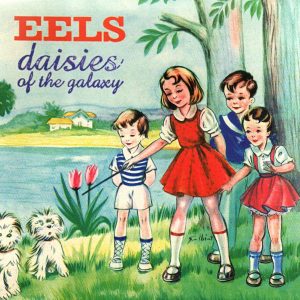 Eels
Eels
Daisies Of The Galaxy
Eels singer/songwriter Mark Everett had nowhere to go but up. His last album, 1998’s Electro-Shock Blues, was the most beautiful downer of the year — a gloriously gut-wrenching musical therapy session that dealt frankly with his sister’s mental illness and suicide, his mother’s fatal battle with cancer and his struggles to get through it all. The followup Daisies of the Galaxy is a welcome glimpse of light at the end of the tunnel. Kicked off, appropriately enough, by a New Orleans funeral band, these 15 charming slices of sweet pop, quirk-hop and hushed alt-folk — think Beck’s mellower, moodier moments — appreciate little miracles like birds, flowers and beautiful days in the way only a man who’s eyeballed death truly can. E still has his shaky moments — “I think I’m on the brink of disaster,” he warns in Tiger in My Tank. But as he says himself on Grace Kelly Blues, “I think you know I’ll be OK.” Glad to hear it.
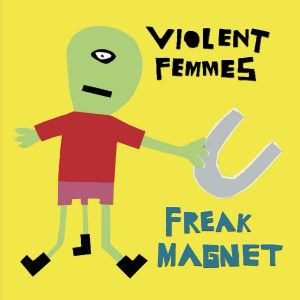 Violent Femmes
Violent Femmes
Freak Magnet
Talk about making up for lost time. After disappearing from the pop-culture radar for more than five years, these venerable folk-punk geeks have issued not one but two discs in the past coupla months. First came the electrifying acoustic live album Viva Wisconsin; now we have this long-awaited studio album, their first since 1994’s New Times. This one could have been called Old Times; despite the years away, Gordon Gano and co. haven’t changed a bit. He still yips his way through these 14 songs like David Byrne hooked up to a caffeine IV; the tunes still have those deceptively simple melodies and child-like lyrics about sad girls, bad boys and madmen; and the band still thrashes and smashes endearingly like the former buskers they are. Get yer Freak on.
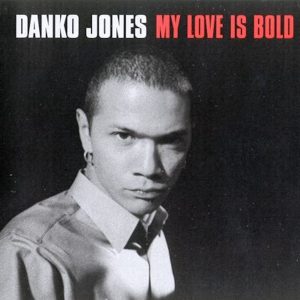 Danko Jones
Danko Jones
My Love is Bold
“My mama raised a devil child,” barks Danko Jones on his new EP — and within seconds, you know he ain’t lyin’. Some sort of Faustian bargain had to go down to spawn a demonic, swaggering sex machine as raw and powerful as this Toronto singer/guitarist. Like a Canuck Jon Spencer, Jones (in the tradition of Alice Cooper and Van Halen, his handle is also the name of the band) welds the macho boasting of delta blues to the three-chord, white-hot nihilism of punk. But he doesn’t stop there; on this six-track offering (an appetizer for a full-length due shortly), the pimpish Jones also factors in a healthy selection of Grade A ZZ Top-style riffs, ending up with a thick ‘n’ chewy blooz-rawk sludge that wows the lads even as Jones woos their women with his hot monkey love hoodoo. “You can call me The Mango Kid,” he says by way of introduction, “but your girl calls me baby.” No wonder.
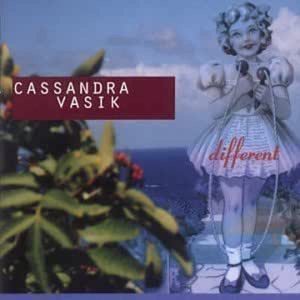 Cassandra Vasik
Cassandra Vasik
Different
Different? And how. Perhaps you remember Cassandra Vasik as the gal who won a pair of Junos for Female Country Vocalist after her early ’90s albums Wildflowers and Feels Like Home. Perhaps you also remember wondering what happened to her after that. Well, in the seven years since her last CD, Vasik seems to have traded in her country albums for some Rolling Stones and Sheryl Crow CDs. And the change has done her good. The product of her long-time collaboration with writer/producer Tim Thorney, Different boasts a dozen tracks of radio-ready rock and roots-pop, complete with warm, funky grooves, catchy choruses, ear-candy production tricks and plenty of blues and gospel touches to augment the touch of torch ‘n’ twang still evident in Vasik’s alluring voice. Just like the fast-food folks say, different is good.
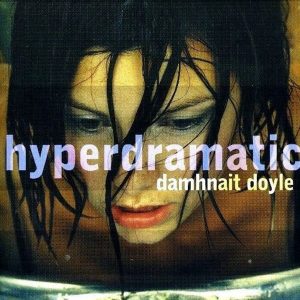 Damhnait Doyle
Damhnait Doyle
Hyperdramatic
Damhnait Doyle is a little tense these days. That much seems clear from the Labrador diva’s accurately titled sophomore CD. Actually, strike that — if anything, Hyperdramatic is an understatement. On these 11 moody, downbeat tracks, the soulful Damhnait (said Dav-VEN-net) makes Fiona Apple seem like Britney Spears as she surveys the wrist-slashed wreckage of her romantic landscape to taut, anxious trip-pop grooves that parallel the obsessive guilt and angst of lyrics like “Open up your wounds / I will be the salt” and “I want to break, I want to fall / To be cut by the jagged edges as I learn to crawl.” Yikes! Transfixing and intense she is without doubt — but you’ll still be glad you’re not out on a blind date with her. Maybe she should pay heed to another one of her lines — “I suffer for things I should not suffer for” — and cut herself some slack.
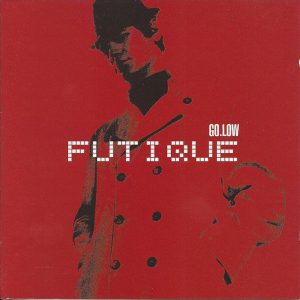 Futique
Futique
Go Low
If there’s a lounge somewhere off to the side of the Star Wars cantina, New York electro duo Futique could be the perfect house band. And on their off nights, they could headline at intergalactic raves after the third sunset on Tattooine. Heaven knows, the ambient, dubby techno sound of their debut disc Go Low is certainly out of this world. Clearly, that’s “low” as in cool, calm and quiet — not deep. Futique’s musical universe features jaunty beatbox rhythms, looney tunes and merry melodies, hypnotisingly kitschy grooves and complex, random-bleep alien ragtime arrangements, stitched together into mellow machine music that takes you on a night flight to Venus. The force — or at least the farce — is clearly with them.
 Mr. Oizo
Mr. Oizo
Analog Worms Attack
Move over, Metallica — there’s a new master of puppets in town. And no, I don’t mean Ed the Sock. Meet European techno sensation Mr. Oizo (pronounced WAH-zo), the alter ego of French artist and filmmaker Quentin Dupieux. The 25-year-old non-musician, who began puttering around with synths just a few years back, became ze toast of ze town when he created a muppet named Flat Eric, licensed it to Levi’s and used his own twisted, endearingly amateurish tunes to score a series of TV ads. Now he and Eric are poised to kick that talking Chihuahua right in his chalupas. So when you can’t turn on MuchMusic without seeing a ginger bear rockin’ the house to a funky, Daft Punk-style electrobeat built from lurching, distorted drum machines, throbbing subterranean basses and squishy, buzzing synths — a thick, chunky style Dupieux fittingly dubs “dirty house” — well, don’t say I didn’t warn you. Ed’s gonna be ticked.
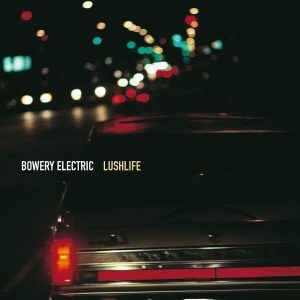 Bowery Electric
Bowery Electric
Lushlife
Quick: Name all the great American trip-hop bands. OK, then, name one. Still stumped? No wonder — there aren’t any. Or at least there weren’t any until drone-rockers Bowery Electric. The Brooklyn-based duo of vocalist Martha Schwendener and instrumentalist Lawrence Chandler — a protege of minimalist LaMonte Young — prove once and for all with their fourth album Lushlife that the Yanks can chill and thrill with the best of their Brit counterparts. On these 10 seductive tracks, dark siren-song vocals and decadent synth squiggles join shock-wave bass slabs and nodding beatbox backbeats in morphine-drip hip-hop grooves less suited to a Big Apple bar than a late-night Bristol backroom — or any place where one relaxes on the axis of the wheel of life.
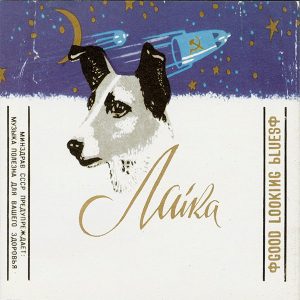 Laika
Laika
Good Looking Blues
When you name your band after the first dog in orbit, people might expect you to sound a little out of this world. British post-pop sextet Laika — not to be confused with Finnish surf-compoops Laika and the Cosmonauts — one again deliver the spacey goods on their third album Good Looking Blues. True to its title, these 10 tracks are a moody love affair between beauty and the beat. The former is vocalist Margaret Fiedler‘s sultry, smart and soulfully icy pipes. The latter is multi-instrumentalist and producer Guy Fixsen’s groovalicious cocktail of syncopated hip-hop, light-fingered jazz, dark dub and edgy electropop. When you put it all together, it’s like nothing on Earth.
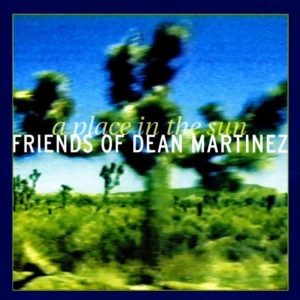 Friends of Dean Martinez
Friends of Dean Martinez
A Place In The Sun
Storm clouds were gathering on the horizon when the stranger rode into town that day. We should have known he was different by his outfit: An old serape and sombrero, two six guns and a beat-up Telecaster. He pushed through the swinging doors of the saloon, ordered two fingers of red-eye, lit a cheroot and asked, “You know where a guy can find a jam session in this one-horse town?” Fingers the piano man asked, “What can ya play on that thing?” “Anything you can,” the stranger shot back. “Space-dust blues, fuzzy noise-rock, twangy cocktail-surf, fleet-fingered flamenco, you name it — hell, I can pick a version of George Gershwin’s Summertime that’ll fry your brain.” With that, he plugged into an old Fender Twin, cranked up the reverb and poured out guitar licks with the high lonesome space of the wide prairie. Somewhere off in the distance, lightning sizzled and I could swear I heard an old organ moaning low. Things were never gonna be the same again …
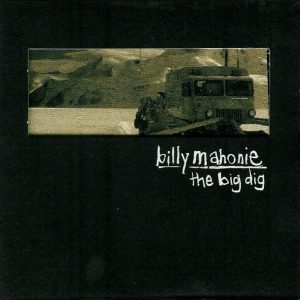 Billy Mahonie
Billy Mahonie
The Big Dig
It sounds like the name of an Irish folk-punk with an acoustic guitar and a spiky quiff, but actually, there is no Billy Mahonie. In fact, no one in this English instrumental quartet is named Billy or Mahonie. Putting a moniker to their distinctive sound is equally difficult. Although it cycles through the elements of indie, prog and post-rock, their guitar excursions lean more toward the sleepy, slacker-garage vibe of Pavement than the mathy sonic dissertations of Tortoise. Billy’s real secret weapon and the element that truly set them apart, however, are their two-bass lineup. One four-stringer anchors the traditional bottom end, freeing the other to play off the guitar lines, adding a textural middle-ground to the spectrum and giving the band a sound with its own distinct personality. Ultimately, that’s who Billy Mahonie is.
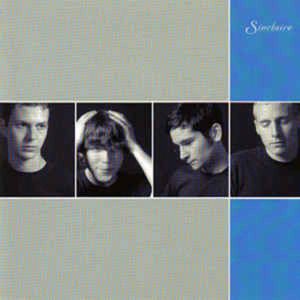 Sinclaire
Sinclaire
Sinclaire
Emocore is one of the most vibrant and thriving indie-rock genres these days — but good luck trying to find a band that admits playing it. Maybe they don’t want to look like wimps, or maybe they’re afraid of being dissed as sellouts by the notoriously unforgiving hardcore fans, but for some reason, nobody wants to be called emo. You get the sense London, Ont.’s Sinclaire feel the same way. So this EP tries to distance them from the emo crowd by flirting with the chiming guitars of alt-pop, the pacing of punk, the anxious vocals of Superchunk and even the occasional ’80s rock arpeggio, melding them into a middle ground between The Get Up Kids and Best Kissers in the World. Call it emo, pop-punk or something new (My suggestion: Heartcore). Whatever you call it, it’s worth a listen.
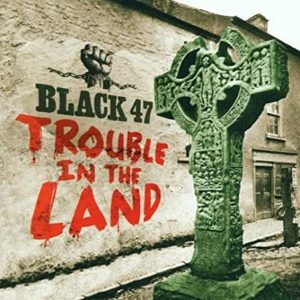 Black 47
Black 47
Trouble In The Land
“Do you think they met in the prison yard?” asked the wife after seeing the pic of this New York Celtic-rock outfit on their seventh CD. OK, so this sextet of Irish ex-pats are easily the motleyest crew since The Pogues; in Irish music circles, they’re also one of the finest. And the most eclectic. Taking their name from the darkest year of the Potato Famine, Black 47 inject strains of rap, rock and reggae into their traditional pipe-and-whistle folk, birthing a versatile hybrid not unlike Dexy’s Midnight Runners but far less pretentious and annoying. It goes down smooth as a blended whiskey even as it bolsters leader Larry Kirwan’s whip-smart lyrics and passionate tunesmithery — Trouble, among other things, delivers an ode to Bobby Kennedy, bases one track on the Countess de Markievicz, and reinterprets When the Saints as a Celtic-ska road-band chronicle. They may not be much to look at, but man, are they easy on the ears.
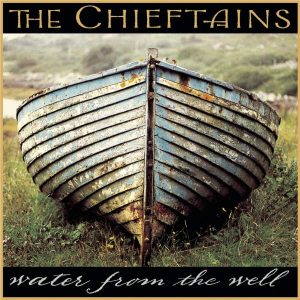 The Chieftains
The Chieftains
Water From The Well
After spending the past few years collaborating with everyone from Keith Richards to Rita MacNeil, riding the crest of the Celtic wave and generally cementing their spot as The Beatles of Irish music, what could Paddy Maloney and his Chieftains possibly do that’s new? Well, how about something old? For this latest release (timed to coincide with a new TV special) the long-serving sextet returns to its roots — musically, commercially and geographically. Its 17 tracks — 16 traditional standards and one Maloney composition — were recorded at a variety of sites throughout the Emerald Isle, from staid studios to raucous pubs. Amid the pipes, whistles, harps and drums, the closest thing to a rock star (if you don’t count Frankie Laine) is fiddler Ashley MacIsaac, who — despite the title — is on his best behaviour on the rollicking Dingle Set. All told, Water From the Well is a refreshing taste of the Chieftains of olde.


